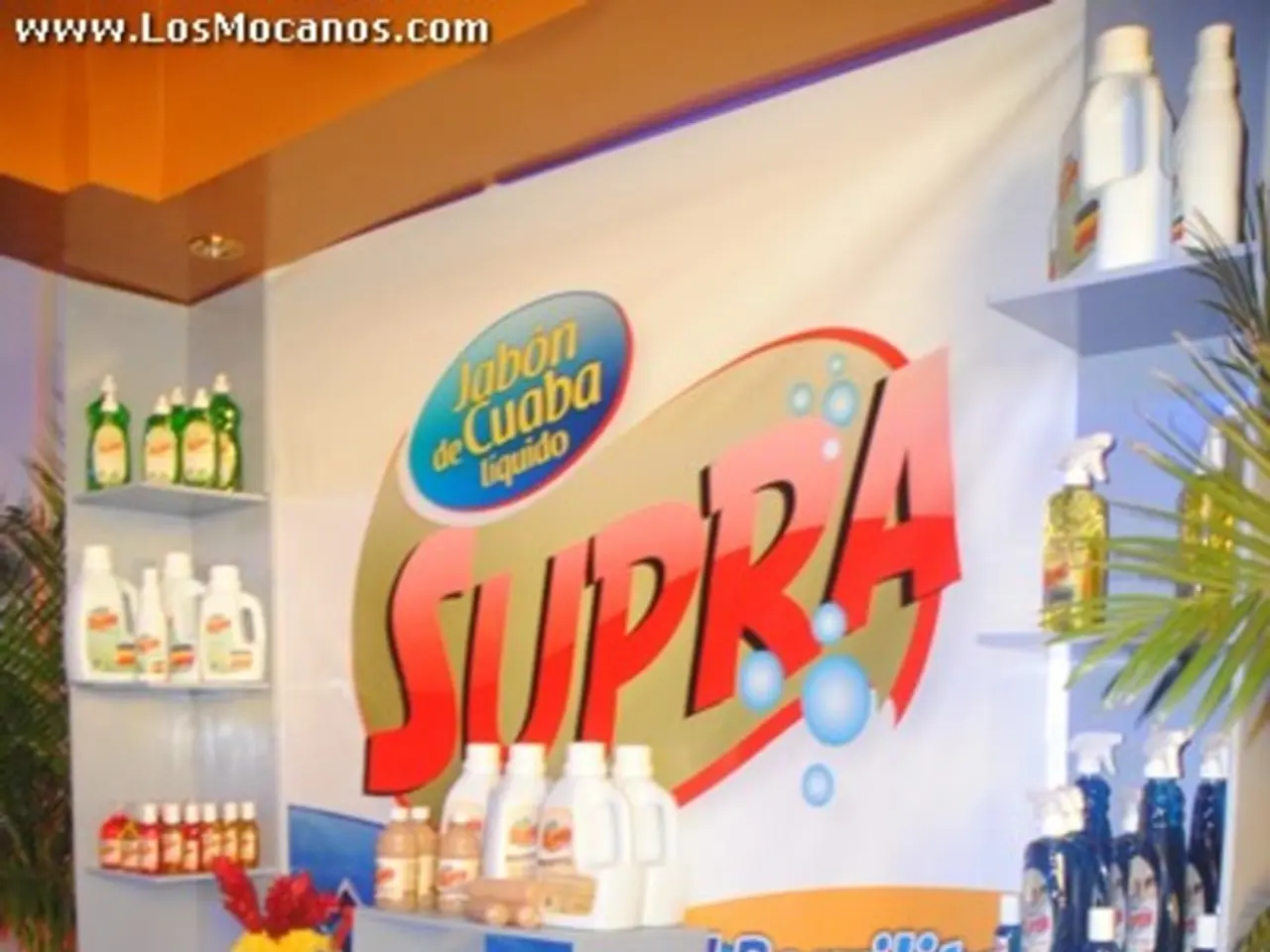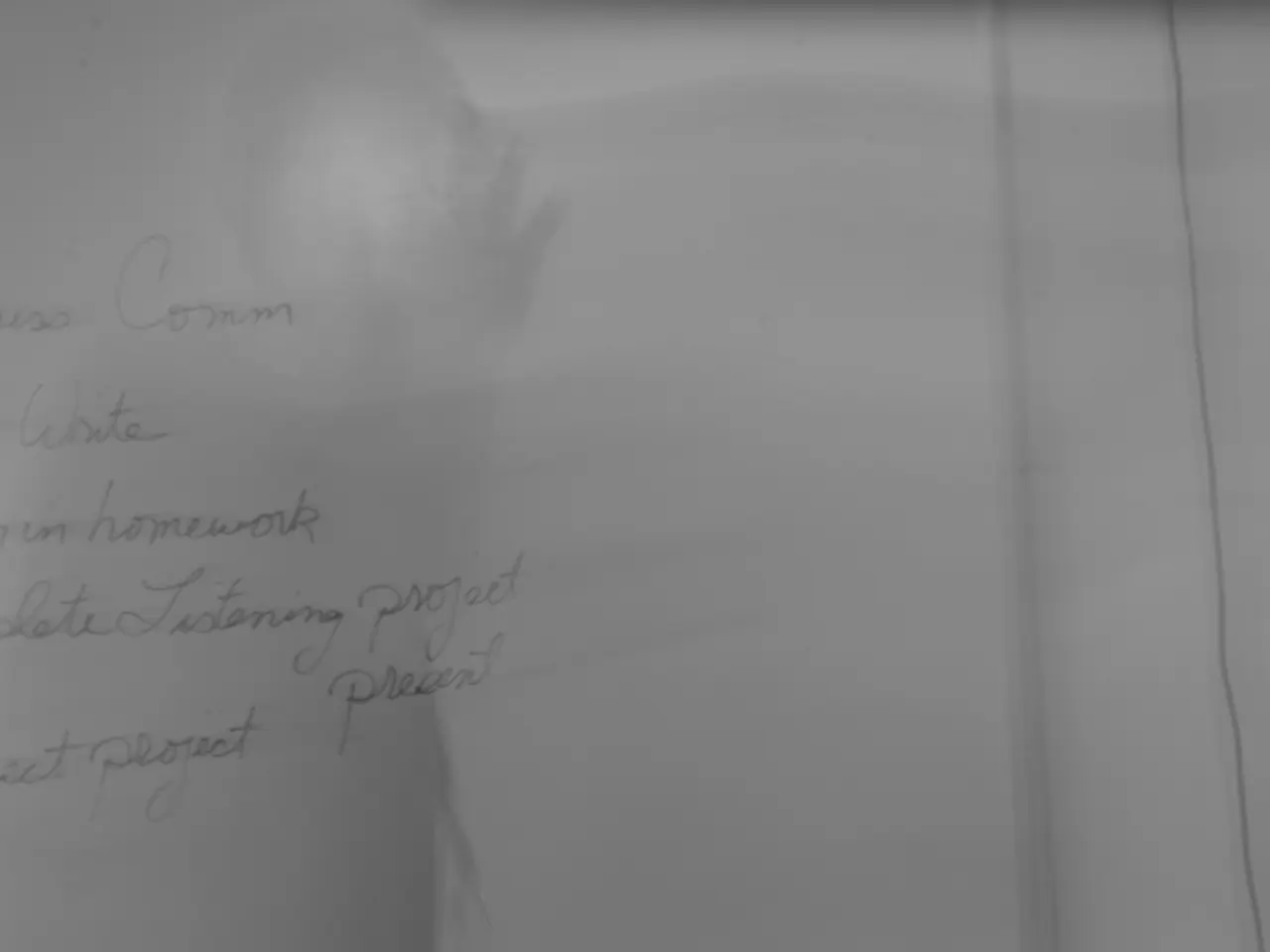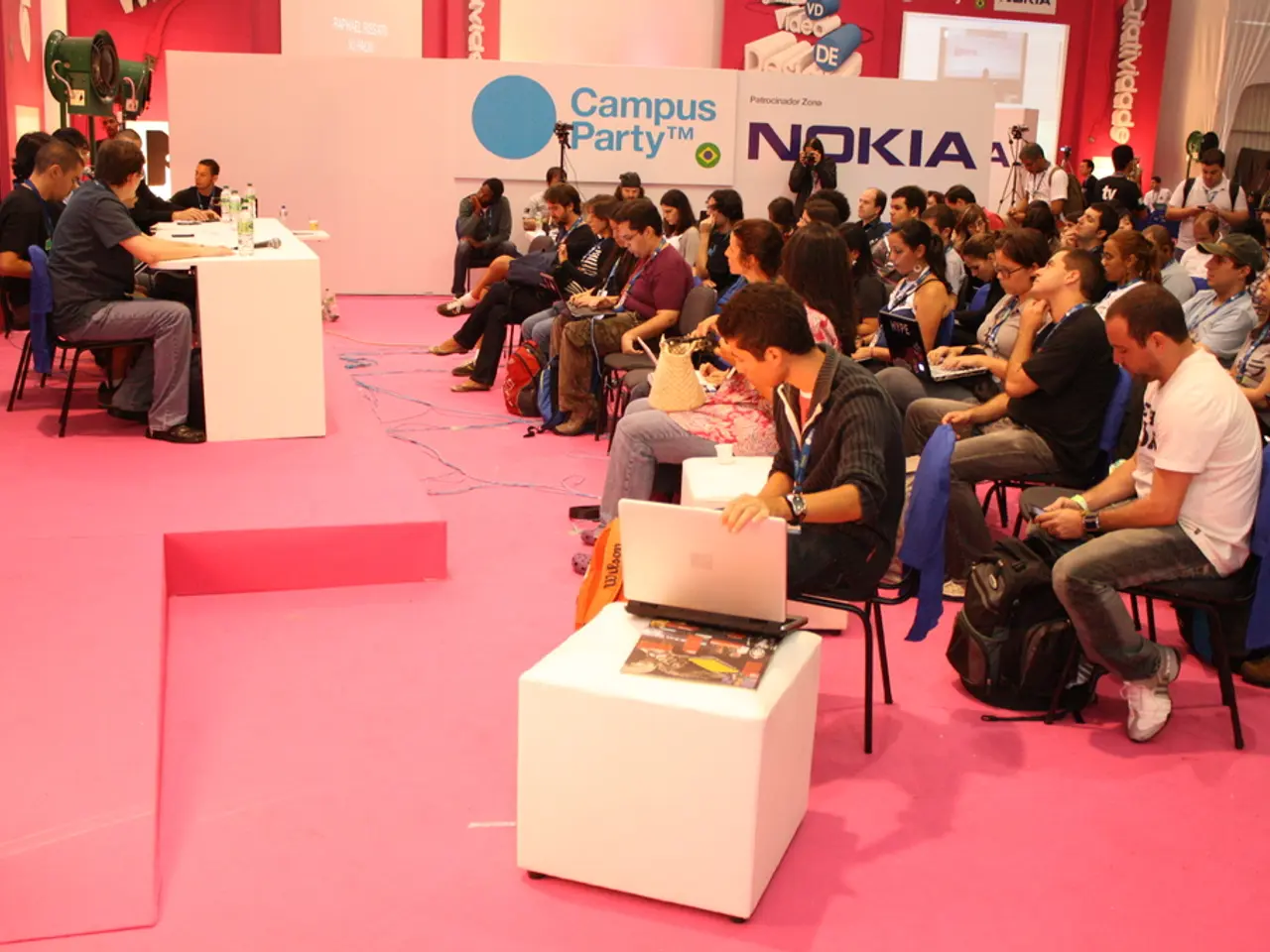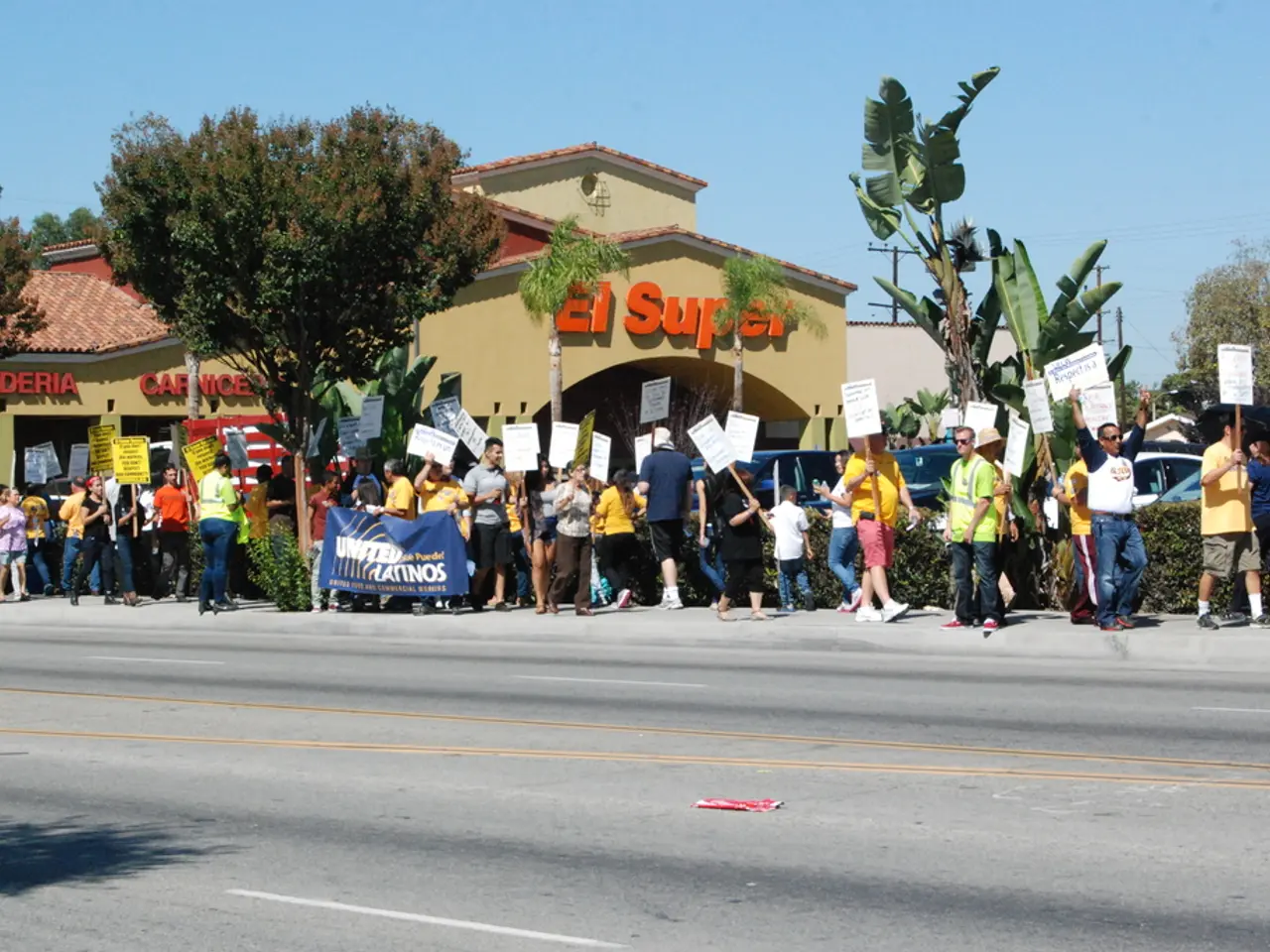Could Lululemon pursue legal action against the practice of replicating their products, known as 'dupe culture'?
In the ever-evolving world of fashion, high-end brands like Lululemon are facing a significant challenge from the rising popularity of private label products and the so-called 'dupe' culture. This trend, heavily influenced by social media platforms, has led to legal battles over trademark infringement, as seen in Lululemon's recent high-profile lawsuit against Costco.
The lawsuit, filed at the U.S. District Court for the Central California, alleges that Costco's Kirkland Signature brand is selling private-label leggings and jackets that closely mimic Lululemon’s signature design elements, such as paneling, seam placement, and fabric finish. These designs are protected under Lululemon’s design patents and trade dress rights, which cover the visual appearance signalling the brand's identity.
The lawsuit claims multiple legal violations, including design patent infringement, trade dress violation, and false designation of origin—accusations that Costco’s products are confusing consumers and diluting Lululemon’s brand value. The case is being closely watched as it could establish a precedent for how private-label retailers are allowed to imitate fashion designs and how aggressively premium brands can enforce their intellectual property rights.
The growth of 'dupe culture' has normalised bargain hunting and promoted knockoffs as affordable ways to emulate luxury styles. Influencers often share these 'hacks' to get similar aesthetics at a fraction of the price, which challenges the traditional loyalty and desirability premium brands have cultivated.
This trend pressures brands like Lululemon to innovate rapidly and expand their product lines into higher-end and more exclusive categories, such as their “Align” line and gender-neutral collections, to differentiate themselves and maintain a lifestyle brand status rather than just a clothing label.
The contrast in brand positioning is stark: Lululemon emphasises exclusivity and innovation, while private labels capitalise on cost-conscious consumers’ desire for aspirational styles. This tension reflects a broader cultural shift on how consumers value authenticity versus accessibility.
Despite the legal action, consumers are increasingly open to private brand products. According to First Insight CEO Greg Petro, this is due to the consideration of a value quotient on products. A study by First Insight found that nearly 45% of consumers and 70% of those earning $150,000 or more a year are more likely to try private label if it’s marketed as a dupe of a high-end product.
The lawsuit filed by Lululemon includes men's and women's garments among the infringing products. Lululemon claims that some consumers believe private label, Kirkland-branded dupes are manufactured by the authentic supplier of the 'original' products. The Washington Post published a style story titled "Is That Hoodie a Lululemon or a Costco Dupe? No One Has to Know But You."
Costco did not respond to a request for comment for this story. The lawsuit seeks an injunction against making, selling, and marketing the infringing products, plus damages and attorney fees. As the legal battle unfolds, it remains to be seen how this will impact the fashion industry and consumer behaviour.
- This legal battle between Lululemon and Costco over trademark infringement could potentially set a precedent for how private-label retailers can imitate fashion designs and how aggressively premium brands can enforce their intellectual property rights.
- The growth of the 'dupe culture' has led to a tension in brand positioning, with high-end brands like Lululemon emphasizing exclusivity and innovation, while private labels capitalize on cost-conscious consumers’ desire for aspirationally priced products.
- A study by First Insight found that nearly 45% of consumers and 70% of those earning $150,000 or more a year are more likely to try private label products if they're marketed as dupes of high-end products, indicating a shift in consumer behavior and increasing openness towards private brand products.
- As the lawsuit continues, it could have significant implications for the fashion industry, influencing policy regarding intellectual property rights, marketing strategies, and consumer expectations for authenticity versus accessibility in the world of fashion.







